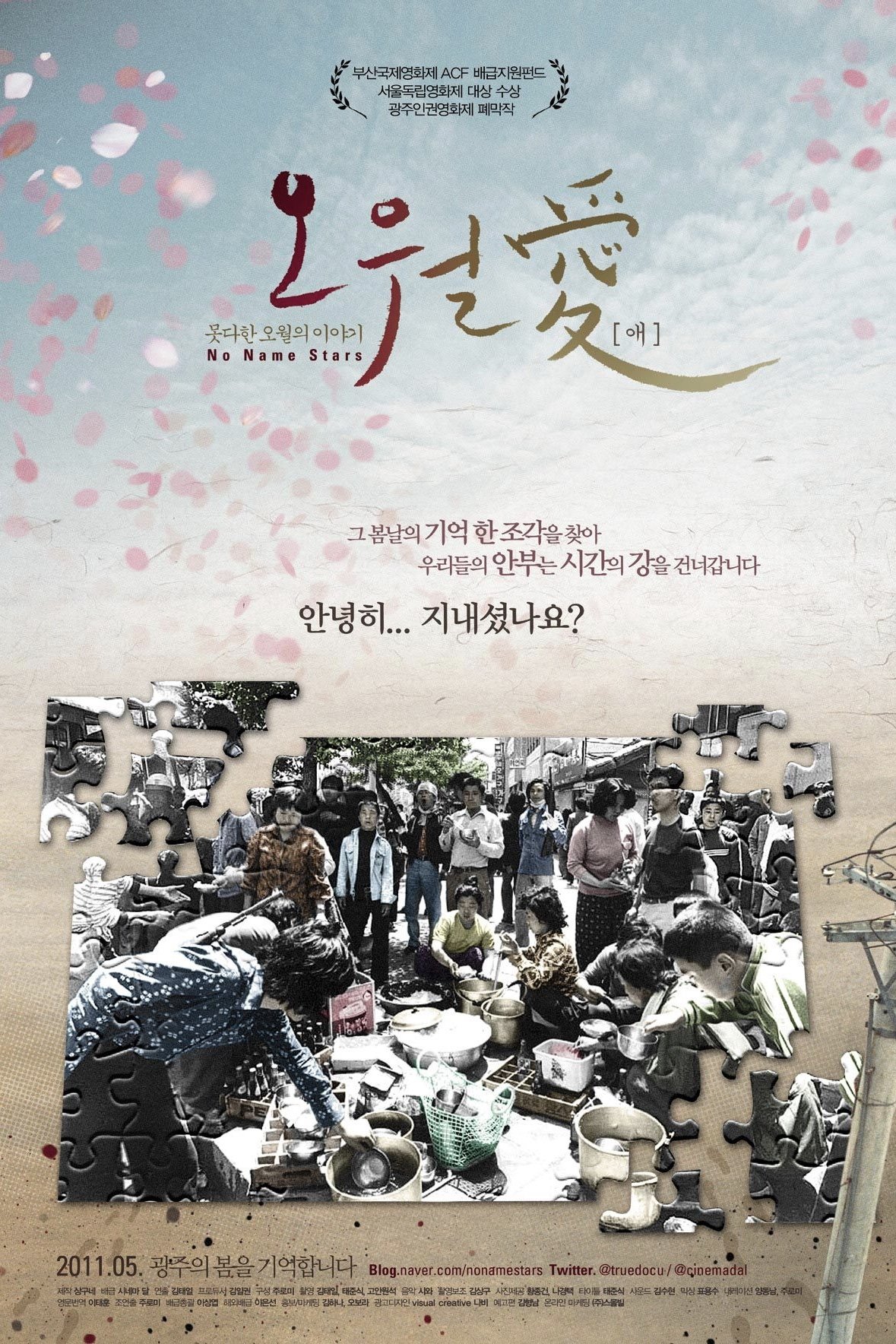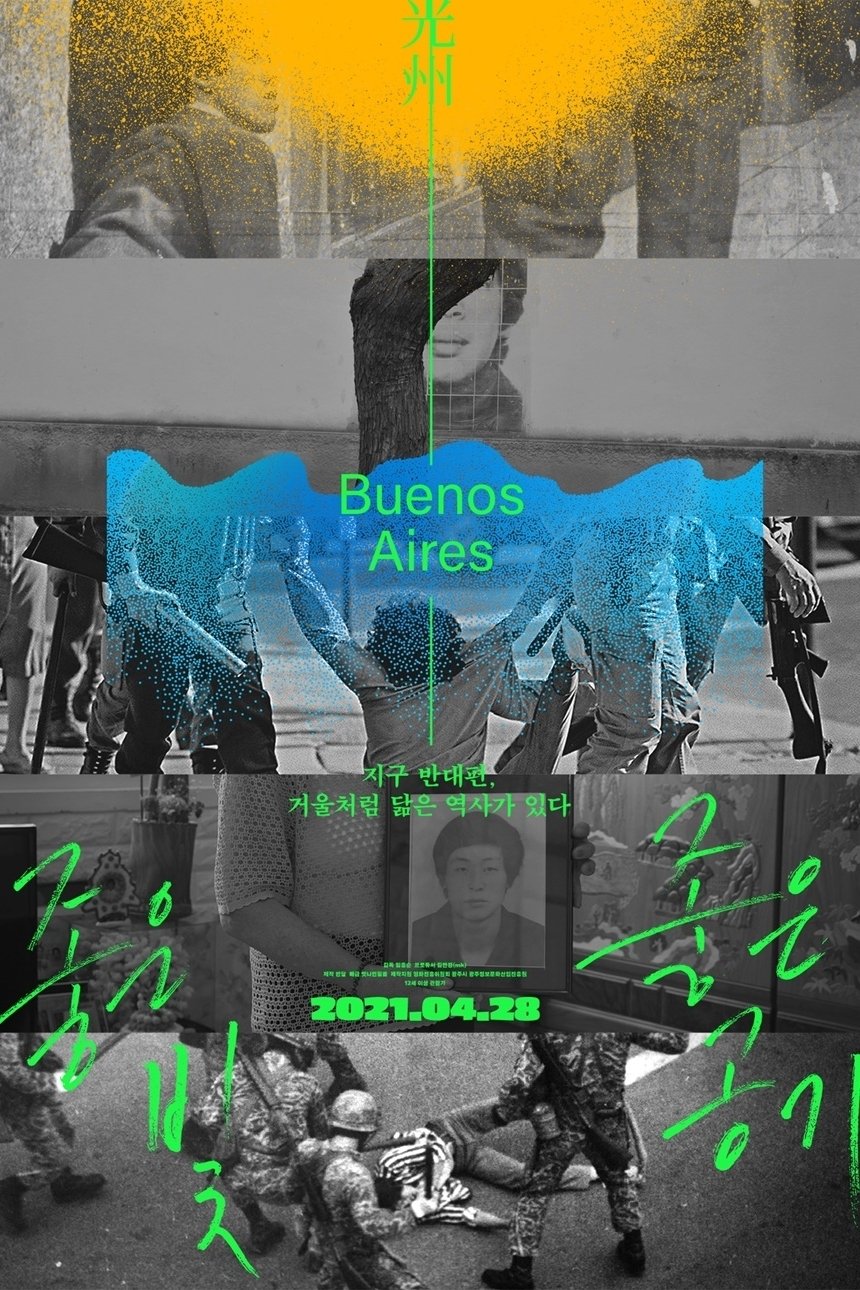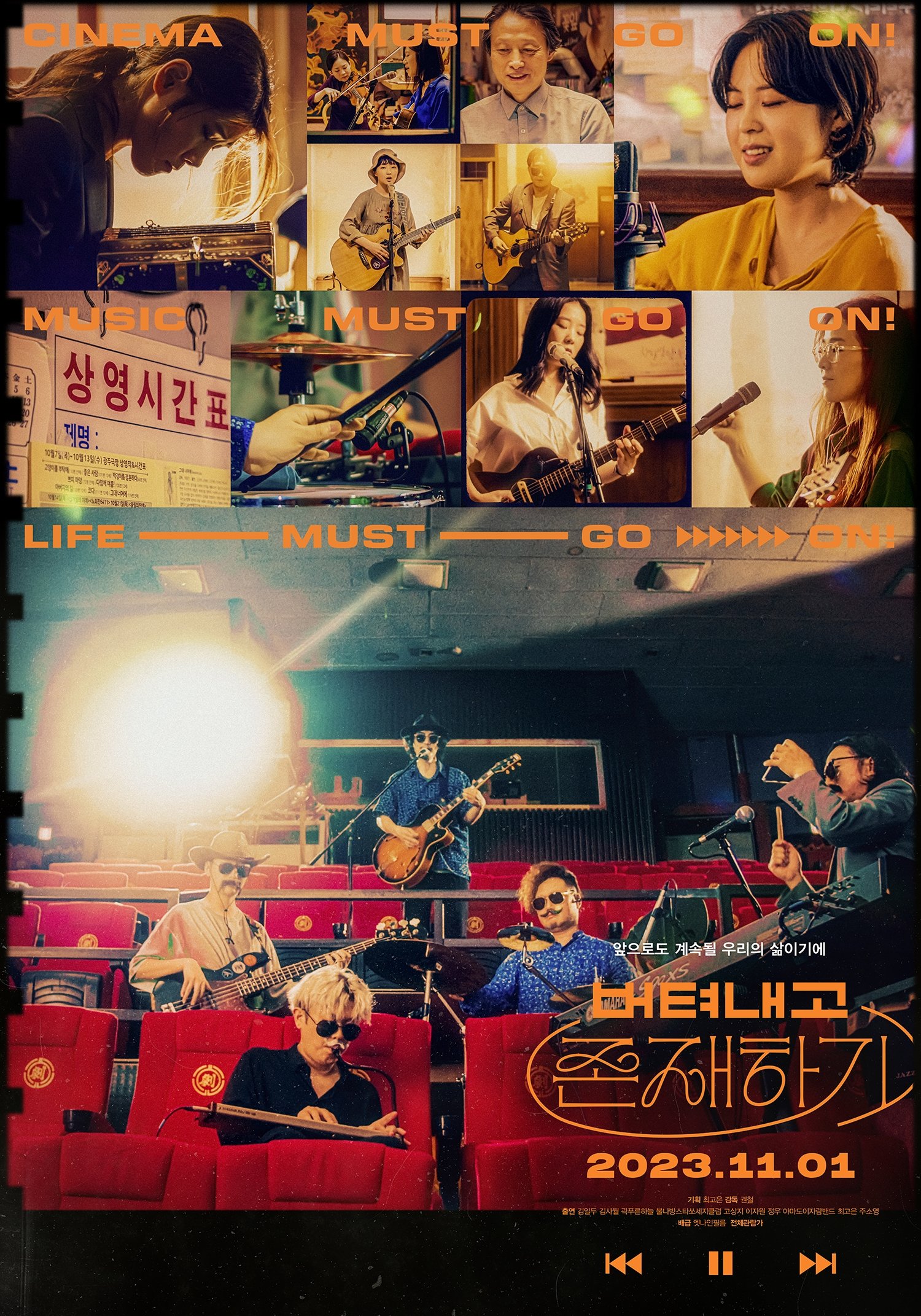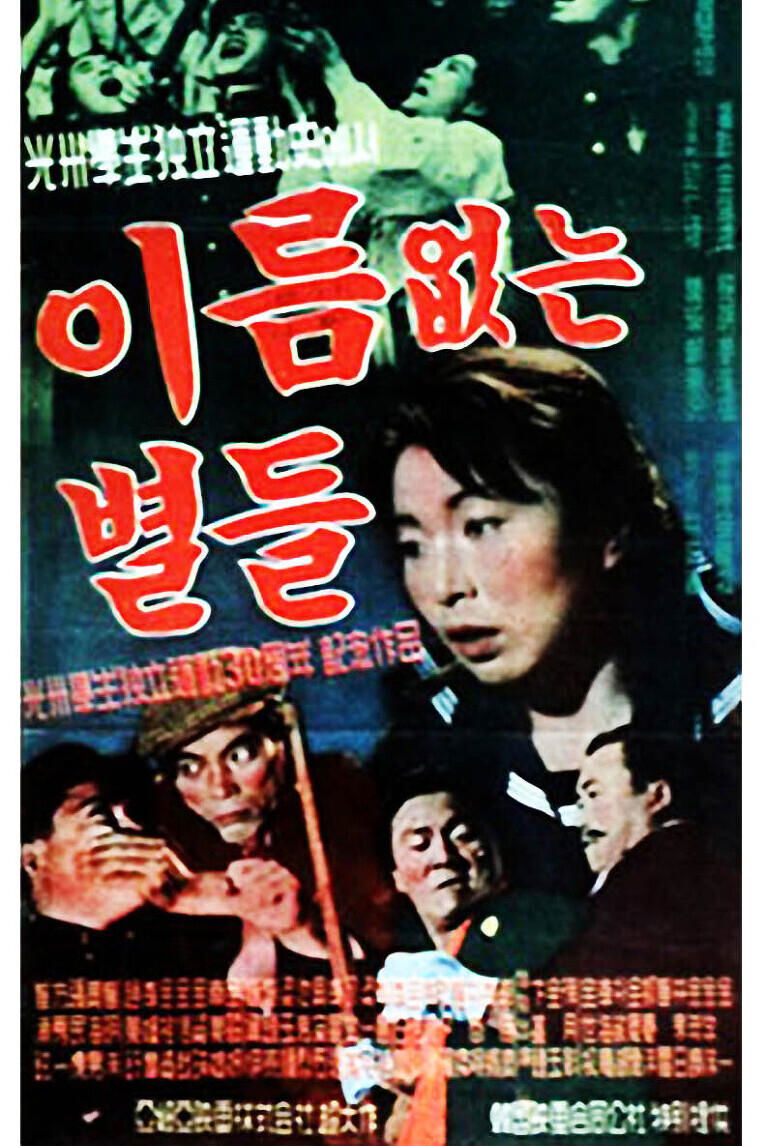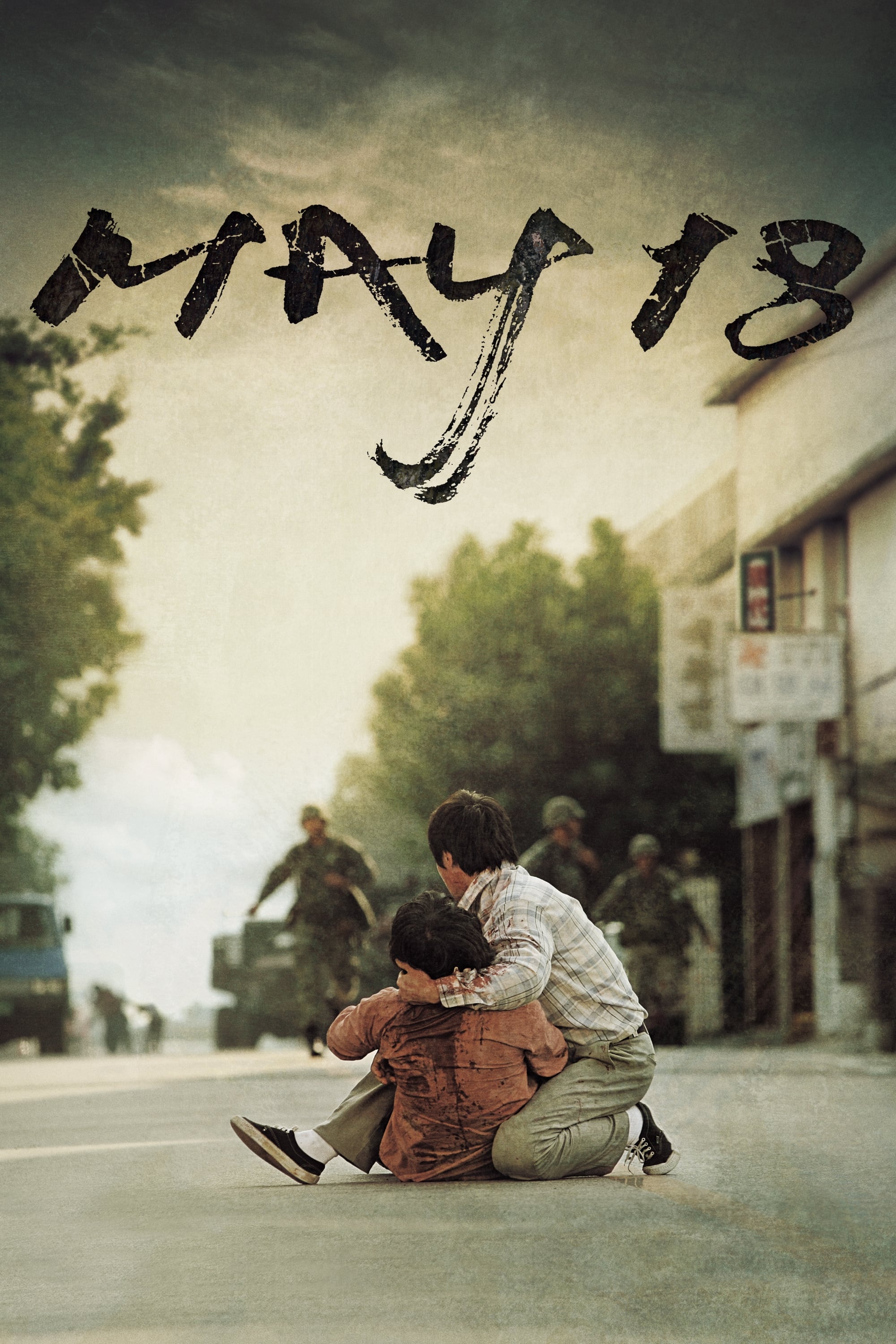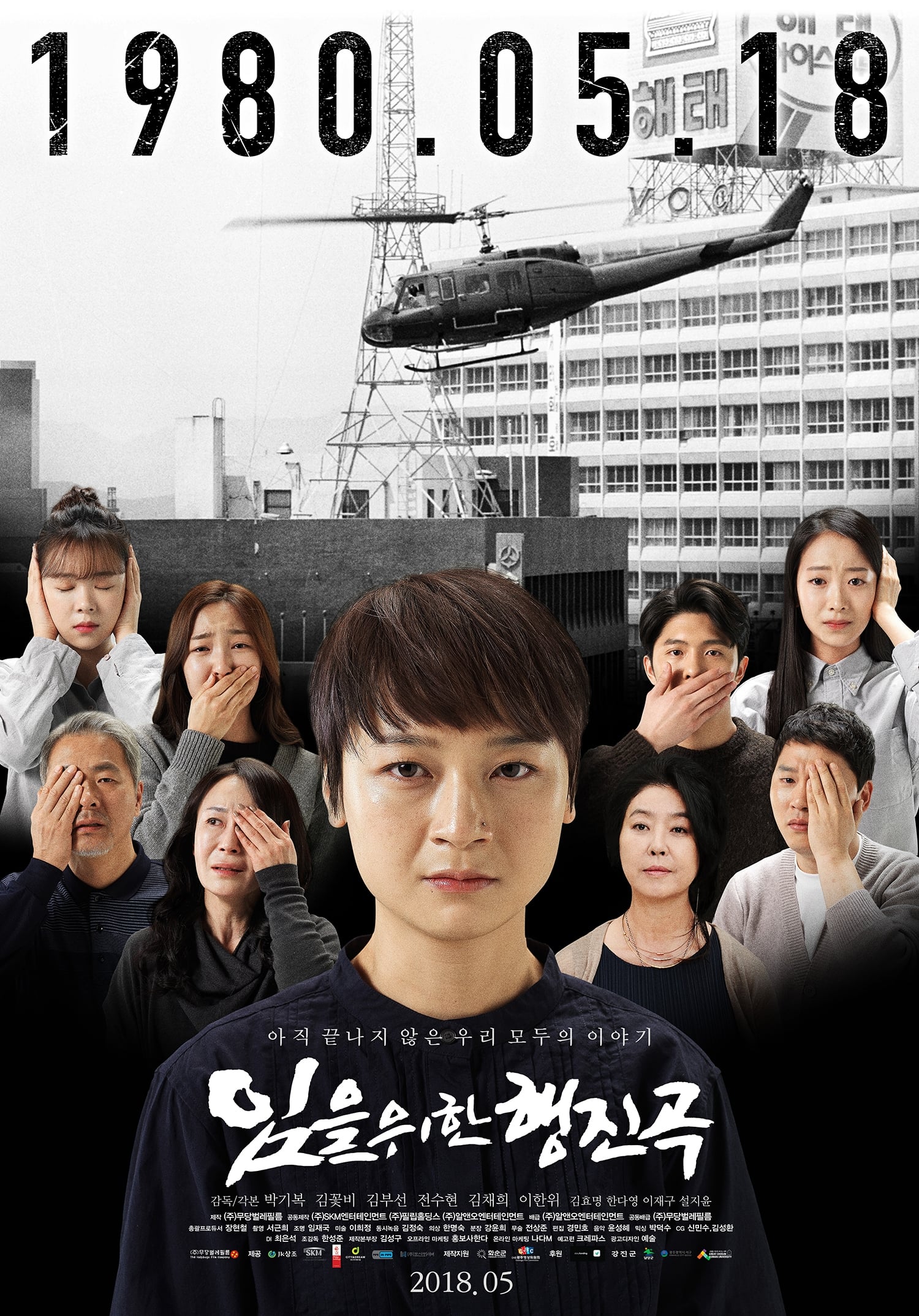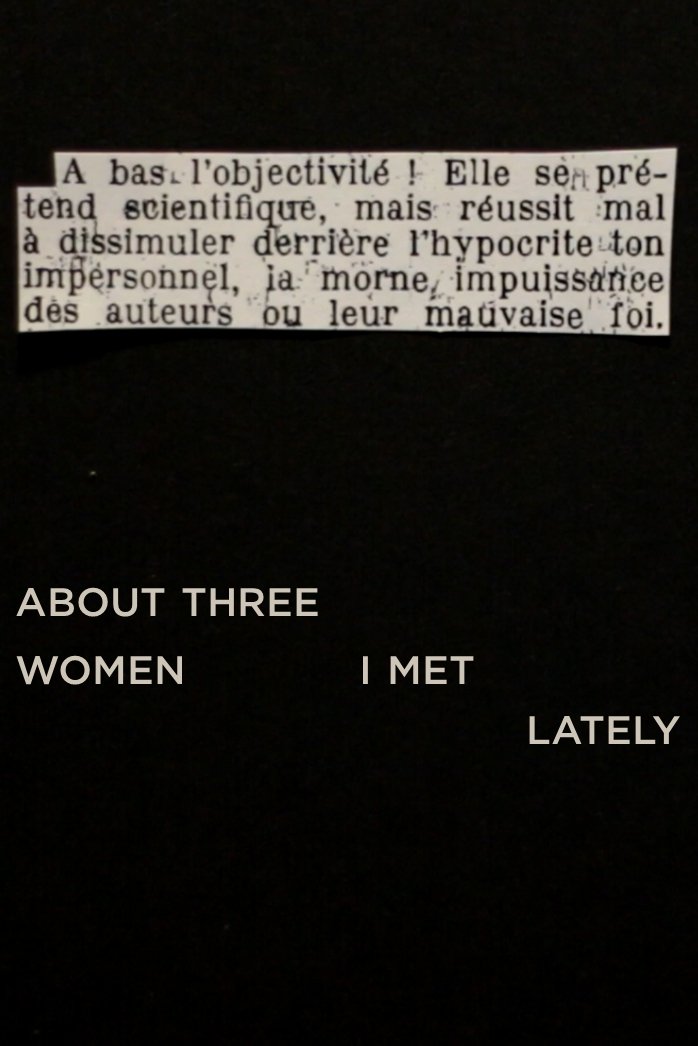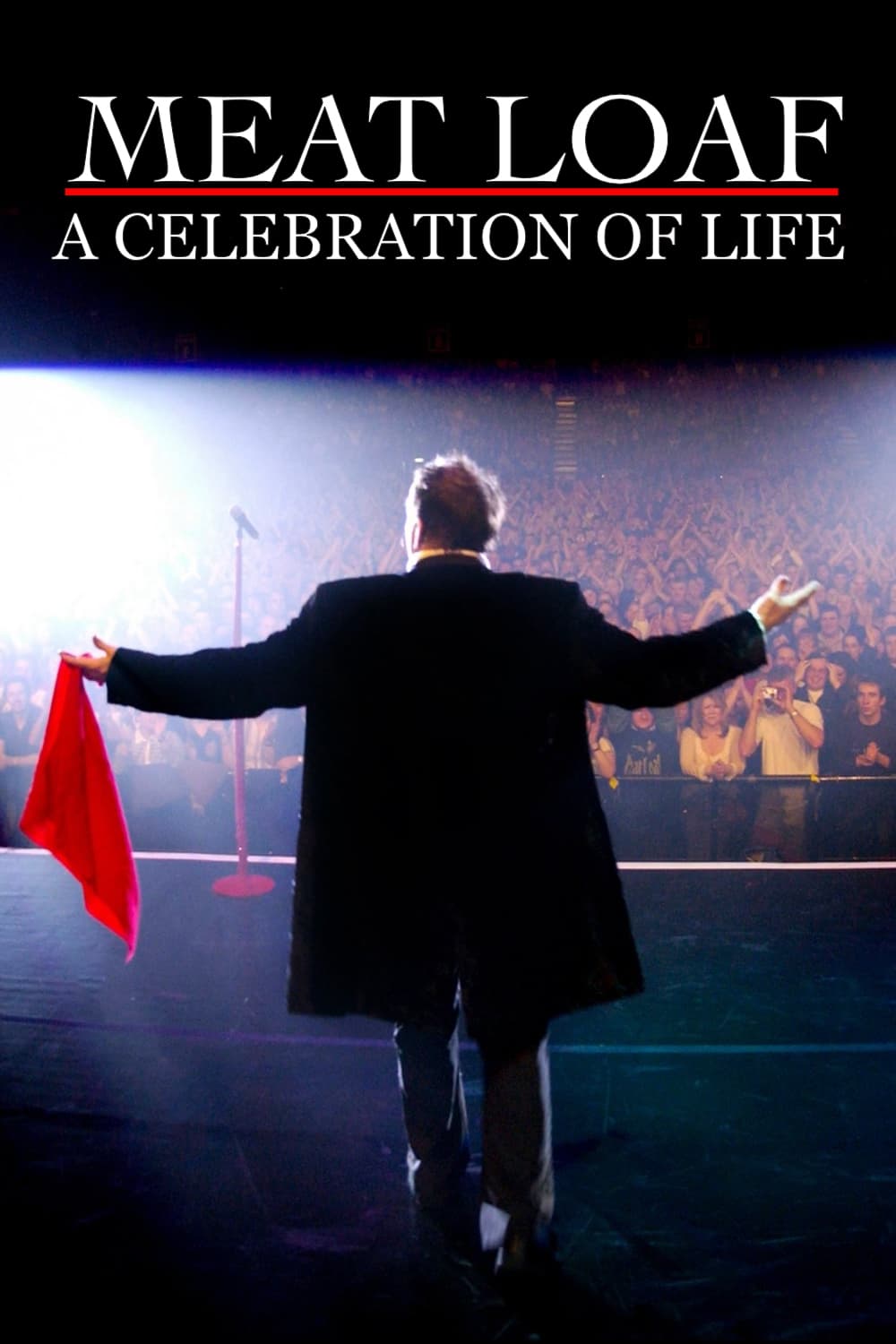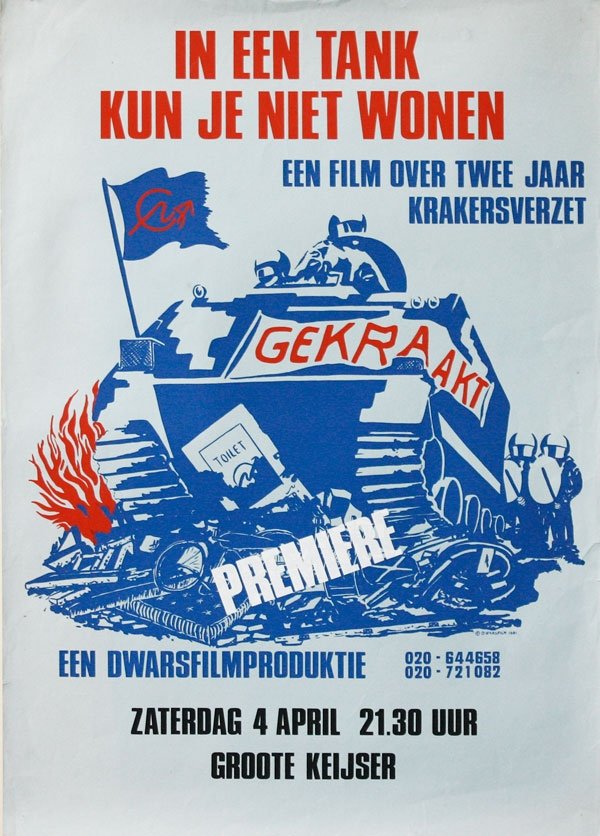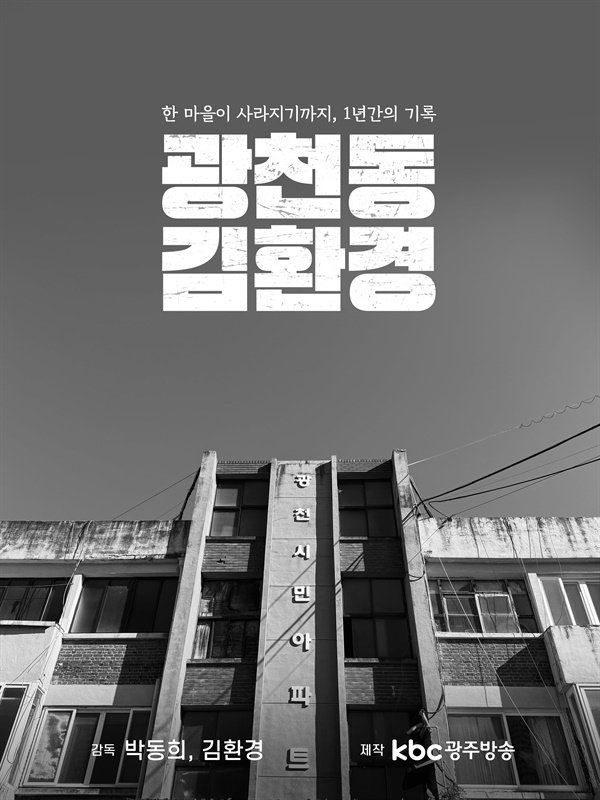
Gwangcheon-dong, Mr.Kim (2024)
Overview
Gwangju is known as a key city of democracy in Korea. Kim Hwan-gyung, a young media artist, begins to live in a typical slum, Gwangcheon-dong. The residents share stories about the lives of the early urban poor, the first Gwangju democracy movement, and concerns about rapid redevelopment. Gwangcheon-dong is scheduled to be demolished and disappear entirely by 2024.
Production Companies

Additional Info
| Budget | $0.00 |
|---|---|
| Revenue | $0.00 |
| Original Language | ko |
| Popularity | 0.596 |
Directed By
Park Dong-hee
Kim Hwan-gyeong
TOP CAST
Similar Movies
No Name Stars
This year is the 30th anniversary of the Gwangju Democratization Movement. Though the country commemorates the event as the official historical records, it does not include any 'real' accounts of the people who experienced it firsthand. The students who were part of the movement; the female vendors who made rice balls for the students; the female high school students cooked at the government building; now, past their middle age, they live as ordinary citizens in Gwangju city. How is the event remembered by these people?
Good Light, Good Air
The title Good Light, Good Air is oddly paradoxical. Keenly working at the point where his artistic identity and persistent attention on modern Korean history meet, director Im in this film focused on where the history of oppression and struggle intersect between Gwangju and Buenos Aires. In both cities, a great number of people who fought against the dictatorship were slaughtered and disappeared. The people of both societies still live with that trauma. When the testimonies of the victims of the two cities cross over, the film gives us chills as the eerie history of the two is very similar. Through Good Light, Good Air, director Im asks us how we will remember the past from where we stand right now.
Withstanding and Existing
Cinema Gwangju is the first theater in the Honam-region and the only theater that opened in 1935. The cinema has screened films in its original place up to these days. A musician Gonne Choi invites the seven musicians to share "Gwangju-ness" from her own perspective and they visit the cinema to speak and sing about their own "Withstanding and Existing". This documentary also contains the story of the painter Park Tae-gyu, who continuously has been working on hand-painting movie posters from the 1990s until today.
A Taxi Driver
May, 1980. Man-seob is a taxi driver in Seoul who lives from hand to mouth, raising his young daughter alone. One day, he hears that there is a foreigner who will pay big money for a drive down to Gwangju city. Not knowing that he’s a German journalist with a hidden agenda, Man-seob takes the job.
D-Day, Friday
Eunju, a teenage girl, wants to go to a high school baseball game where the boy she has a crush on will be playing.
Scout
1980, Kwang-ju is fired up about a genius pitcher, a senior in high school. Ho-chang takes confident strides across the field making his way by cutting through the sand dust. He’s a university scouter on a mission. His task is to scout the genius pitcher, SUN Dong-yeul, a master of baseball who may be scouted to a rival university. But he is no where to be seen. But Ho-chang is determined to not let down his reputation as a successful scouter, and his scouting mission of 10 days begin! An original story of a scouter on a 10 day mission full of undisclosed history will now unfold!
Le Grand Chef 2: Kimchi Battle
"Le Grand Chef 2" begins with the Korean president visiting the Japanese Prime Minister and becoming involved in a heated debate over the origins of kimchi. The Japanese Prime Minister makes the bold claim that kimchi is an original Japanese dish which sets off the Korean president. Upon the Korean's president return home he sets upon a globalization plan for kimchi, which includes a nationwide "Kimchi Contest". Then, a lady named Jang-eun (Kim Jung-Eun) and her step-brother Sung-Chan (Jin Goo) compete in the Kimchi dish contest, with both siblings using their mother's kimchi recipe.
A Petal
A young girl is caught up in the 1980 Gwangju massacre, where Korean soldiers killed hundreds, if not thousands, of protesters who opposed the country's takeover by the military the year before. Flashbacks show the girl seeing her mother shot to death in the massacre. The film spurred the Korean public to demand the truth behind the incident, and their government eventually opened previously classified files on the massacre.
Nameless Stars
The son of a freedom fighter, Sang-hun is a member of an anti-Japanese resistance group called "Seongjinhoe," composed of students who share a dedication to the cause of liberation. Their spiritual guide is a teacher named Song Un-in. One day, Yeong-ae, whose brother is a detective in the Japanese police force charged with monitoring independence movements, joins their group. Following a series of sporadic incidents, the students gather one night to resolve on an uprising, but are discovered by the police. Young-ae is wrongfully accused of betraying their plans, but she risks her life in order to allow the group members to escape. The morning after, the students of Gwangju rise up against the Japanese government.
Le Grand Chef
A disgraced chef tries to restore his name by competing in a culinary contest to win the knife of Korea's last royal chef.
May 18
The citizens of Gwangju lead a relatively peaceful life, until one day the military takes over the city, accusing the residents of conspiracy and claiming that they are communist sympathisers preparing a revolution against the current government. Seeing as the soldiers beat defenceless people, mainly students, to death, the citizens are in for retaliation and form a militia.
26 Years
26 years ago, state troops were ordered to open fire on civilians in the city of Gwangju who were demonstrating as apart of a democratic movement. Thousands of civilians were killed. Now, a shooter from the national team, a gang member, a policeman, CEO from a large company and director of a private security outfit get involved in a plan to convict the person responsible for the massacre.
The March for the Lost
This is the story of a father who died mysteriously in May of 1980, a mother who lives in the shadows with a bullet in her head and not being able to forget May 18th and their daughter, and the nation's greatest comedian, Hee-soo.
Stop Cop City
STOP COP CITY is about the militant occupation of Atlanta's South River Forest. For over a year, a coalition of militant anarchists, community organizers, and eco-activists have been resisting police and contractors to halt the deforestation of hundreds of acres of urban forest.
Meat Loaf - A Celebration Of Life
A short film tribute about the musician Meat Loaf, released by his family in 2023 on the anniversary of his death.
Greed Energy
Greed Energy illustrates the adverse effects the Obama administration’s “Fast-Tracking” of large scale renewable energy projects.
In een tank kun je niet wonen
A documentary about “1980” in Amsterdam, by Jan Groen and Hanneke Willemse Documentary originally recorded on super 8 about the squatters' movement in Amsterdam
